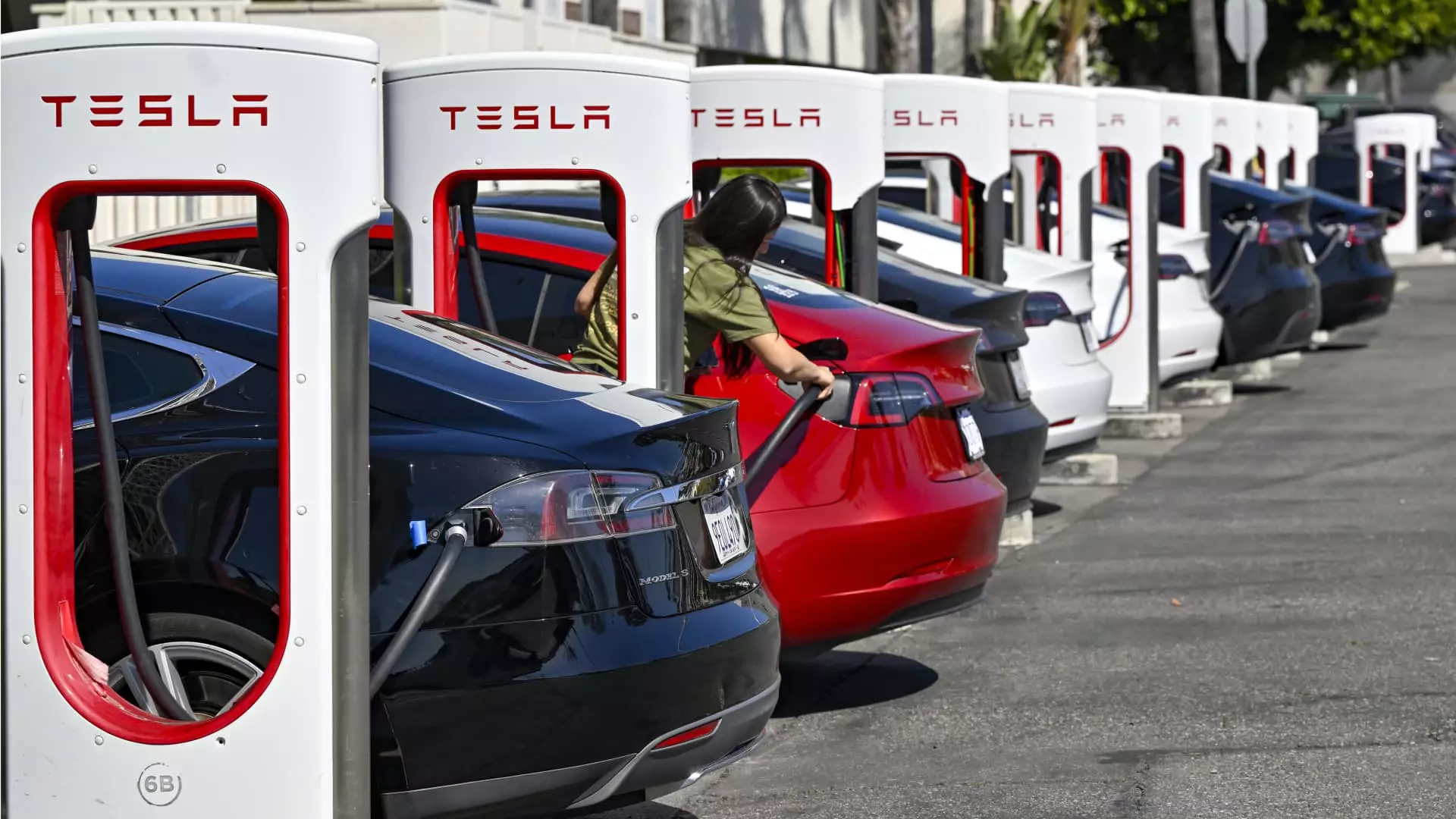The concept of a car losing its value as soon as it is driven off the lot is nothing new, but when it comes to electric vehicles (EVs), this depreciation trend is taking on a whole new dimension. Industry and investment experts are pointing to the rapid decline in the value of used EVs as a major barrier to wider adoption of these vehicles. This trend has significant implications for both the new and used EV markets.
A recent study by iSeeCars.com revealed that the average price of a 1- to 5-year-old used EV in the U.S. has plummeted by 31.8% over the past 12 months, representing a significant value loss of $14,418. In contrast, the average price of a similar age internal combustion engine vehicle only dropped by 3.6% during the same period. While lower prices for used EVs might attract some buyers, they could also dissuade others from investing in new electric vehicles. Karl Brauer, the executive analyst at iSeeCars, emphasized that the steep initial depreciation of new cars is a major deterrent for potential EV buyers, as they become increasingly aware of the significant drop in EV values over time.
Corporate figures and stock analysts are also expressing apprehensions about the ability of EVs to hold their value. David Kuo, a stock analyst and co-founder at the Smart Investor, likened EVs to consumer electronics like laptops and cell phones, which depreciate rapidly after purchase. He highlighted the scenario where buyers could end up paying a premium for outdated software and computing capabilities in used EVs, leading to buyer’s remorse. Representatives from VW and Toyota have also acknowledged that depreciation is undermining the value proposition of their electric vehicles.
Market Dynamics and Competitive Pressures
The sharp decline in used EV values in the U.S. is largely attributed to aggressive price cuts by Tesla, the dominant player in the EV market. Elon Musk’s strategy of lowering prices to drive sales has had a ripple effect on the entire EV market, as buyers are reluctant to pay the same price for used EVs when new Tesla models are available at lower prices. The ongoing price war between Tesla and Chinese competitors further exacerbates the situation, with oversupply of EVs relative to demand creating a challenging environment for both new and used EV prices to rebound in the foreseeable future.
The depreciation of electric vehicles poses a significant obstacle to broader adoption and market sustainability. Buyers are becoming increasingly cautious about investing in EVs due to concerns about rapid devaluation, outdated technology, and fierce price competition. While industry and market conditions play a role in driving EV depreciation, addressing these challenges will be crucial for the long-term viability of the electric vehicle sector. As consumers weigh their options in the evolving EV landscape, manufacturers and policymakers must confront the issue of depreciation head-on to ensure the continued growth and acceptance of electric vehicles in the global automotive market.


Leave a Reply